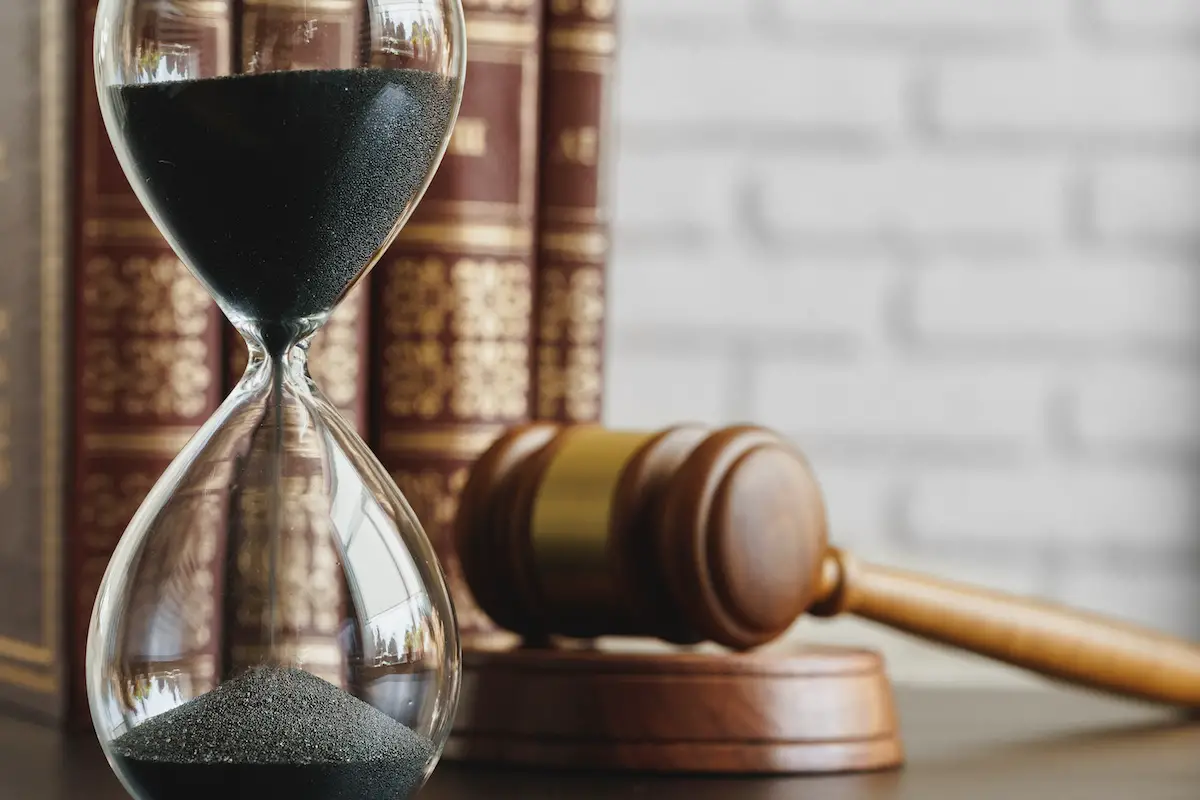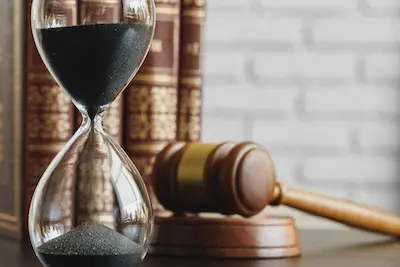
21 Sep How Long After A Deposition Is After Settlement?
When being involved in a lawsuit, there can be several unknowns. One of these can be knowing when a settlement can arise after the end of a deposition. So, how long after a deposition is after settlement?
The length of time it takes to settle a deposition will depend on the facts of your particular case. Typically, the average length of time for a deposition is about 30 days. However, some have been as long as 90 days. The reason for the discrepancy is that each case is different and will be decided on its own merits. In most cases, the amount of time it takes to settle a deposition will be much shorter than the amount of time it would take to go to trial.
This is because both sides usually try to avoid a trial’s expense and hassle. If you have any questions about how long your deposition may take, you should consult with an experienced personal injury attorney that will settle your case. However, if you would like to more about depositions and more, keep reading!

How Long After a Deposition Is After Settlement?
A deposition is a legal process where one party to a lawsuit gives sworn testimony under oath. This testimony is given in front of a court reporter and can be used as evidence at trial. Settlements are often reached after the completion of depositions. The length of time between the end of a deposition and the settlement of a case varies depending on the facts of the case and the jurisdiction in which the case is filed. In some cases, settlements may be reached immediately after the deposition, while in others, it may take weeks or even months for a settlement to be finalized. Therefore, there is no set answer for how long after a deposition a settlement will be reached. However, in most cases, settlements are typically reached within a few months after the completion of depositions.
This time frame can vary depending on the specifics of the case. For example, if there is a large amount of money at stake in the case, it may take longer to reach a settlement. Additionally, if the case is complex or if there are multiple parties involved, it may also take longer to reach a settlement. In any event, it is important to remember that each case is unique and the time frame for reaching a settlement will vary depending on the facts and circumstances of the case. Therefore, if you have questions about how long it may take to reach a settlement in your specific case, you should consult with an experienced attorney who can provide you with guidance and answer any questions that you may have.
What Is a Settlement?
A settlement is an agreement between two parties to end a dispute. In the context of personal injury, this usually means that the plaintiff (the person who was injured) and the defendant (the person who caused the injury) have come to an agreement on how much money the plaintiff will receive. Once a settlement is reached, both sides sign off on it and the case is over. Settlements are typically much less expensive and time-consuming than going to trial, which is why most personal injury cases are settled out of court.
What Is a Deposition?
A deposition is a legal procedure in which a witness is questioned under oath outside of court. The answers that the witness provides during the deposition can be used as evidence at trial. Depositions are often used in personal injury cases to gather information about the accident, the injuries sustained, and the damages incurred.
During a deposition, both sides will have an opportunity to question the witness. The questions will be asked by an attorney for each side and will be transcribed by a court reporter. After the questioning is completed, the court reporter will prepare a transcript of the deposition, which can then be used as evidence at trial. In some cases, depositions may also be recorded on video.
How Long Does a Deposition Take?
The length of a deposition will vary depending on the number of witnesses, the complexity of the case, and the amount of time each attorney spends questioning the witness. In most cases, depositions will last for several hours. However, some depositions have been known to last for days or even weeks. This is because of the variety of cases there can be, so knowing how long your deposition will be could depend on your particular lawsuit.
When Will My Deposition Be Scheduled?
The timing of your deposition will be decided by the court. In most cases, your deposition will be scheduled several months after the filing of the lawsuit. This is because both sides will need time to prepare for the deposition and to gather evidence. In some cases, however, depositions may be scheduled much sooner. For example, if there is a dispute about what happened, or if one side needs to gather more information, the deposition may be scheduled sooner.
What Happens If I Do Not Show Up For My Deposition?
If you do not show up for your deposition, the court may issue a warrant for your arrest. In addition, the other side may ask the court to enter a default judgment against you. This means that they would automatically win the case. As such, it is very important that you attend your deposition and answer all of the questions truthfully.
What Should I Expect During My Deposition?
During your deposition, you will be placed under oath and will be asked a series of questions by an attorney for the other side. You should answer all of these questions truthfully and to the best of your knowledge. It is important to remember that anything you say during your deposition can be used as evidence at trial. As such, you should not hesitate to ask for a break if you need one, or to ask the attorney to repeat a question if you do not understand it.
You should also be aware that the other side will be trying to trip you up and to get you to say something that could hurt your case. As such, you should not guess at an answer or try to make up an answer on the spot. If you do not know the answer to a question, simply say that you do not know or that you cannot recall.
Can I Bring My Attorney to My Deposition?
Yes, you can bring your attorney to your deposition. In fact, you should bring your attorney if at all possible. Your attorney can help to prepare you for the deposition and can object to any questions that they believe are improper.
Do I Have to Answer Every Question During My Deposition?
No, you do not have to answer every question during your deposition. However, you may have to answer some questions if you are ordered to do so by the court. For example, if the other side has asked the court to order you to answer a question that they believe is relevant to the case, the court may order you to do so. Additionally, there are some questions that you may be required to answer even if you do not want to. For example, you may be required to answer questions about your criminal history or about any prior lawsuits that you have been involved in.
What Happens At the End of My Deposition?
At the end of your deposition, the court reporter will prepare a transcript of the deposition. This transcript can then be used as evidence at trial. In some cases, depositions are also recorded on video.
Can I Get a Copy of My Deposition Transcript?
Yes, you can get a copy of your deposition transcript. In most cases, you will have to pay a fee for the transcript. However, if you cannot afford the fee, you may be able to get the transcript for free from the court.
What Happens If I Need to Change My Testimony?
If you need to change your testimony, you can do so by filing a sworn statement with the court. This statement is called an affidavit. In your affidavit, you will need to explain why you are changing your testimony. As well as what your new testimony will be. Once you have filed your affidavit, the court will decide whether or not to allow you to change your testimony.
Can I Be Forced to Testify At Trial?
Yes, you can be forced to testify at trial. However, in most cases, both sides will agree on who will testify at trial and who will not. If both sides cannot agree on who should testify, the court will make the decision.







